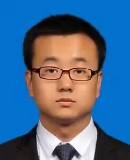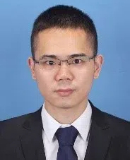NMEE-HFCOM' 24
Hydrogen and Fuel Cell Operation and Management
Hydrogen energy is regarded as the clean energy source with the greatest potential for development in the twenty-first century. Hydrogen is a bridge between renewable energy and traditional fossil energy, and the vision of a transformed future of clean energy use can be realized through hydrogen and fuel cells. At present, hydrogen energy and fuel cells have been initially commercialized in some fields. The simple principle of fuel cells is to convert the chemical energy of fuel directly into electricity without combustion, with an energy conversion efficiency of up to 60%-80%, and with less pollution, less noise, and a very flexible device that can be large or small. At the earliest, this power generation device is mainly used in astronautics as a power source, has gradually turned to ground applications. In this context, this session focuses on hydrogen energy and fuel cells, aiming to bring together global experts, scholars and industry elites to build a diversified, open and innovative sharing platform, and jointly promote the innovation of energy-saving and environmentally friendly materials and their further industrial applications for win-win cooperation.
Topics of interest include, but are not limited to the following:
- Fuel Cells, Embedded Power Generation and Energy Storage
- Hydrogen-Oxygen Fuel Cells
- Hydrogen from electrolytic water for energy storage
- Proton Membrane Fuel Cell Catalysts, Hydrogen Storage Materials, Hydrogen Production Catalysts
- Solar Photo-Hydrolysis for Hydrogen Production
- Hydrogen Storage Materials
- Solid Oxide Fuel Cell Electrode Materials
- Proton Exchange Membrane Fuel Cell
- Microbial Fuel Cell
- Solid Oxide Fuel Cells
- Hydrogen Energy Production
Session Chair

Yuehua Li, Associate Professor, University of Science and Technology Beijing, China
Dr. Yuehua Li is currently Associate Professor of School of Mechanical Engineering at University of Science and Technology Beijing. He obtained his Ph.D. from Tsinghua University and is engaged in the research of fuel cell water management, health diagnosis, and nonlinear control. He improved the theory of water detection in association with pressure drop, and proposed the water amount detection method for different layers in fuel cell, which is benefit for the cold-start and long-time unattended operation for the fuel cell stack. He published more than 30 SCI papers with h-index 19. He hosts the programs of National Natural Science Foundation, Innovation Foundation of China Aerospace Science and Technology Cooperation. Academically, he found the characterization mechanism for liquid and vapor amount in different layers of fuel cell, developed the mass transfer of gas/liquid/proton/electron and heat transfer theory through porous multiscale media. For application, he developed the software and hardware for the parametric design, assessment, and simulation for fuel cell stack and system, which could be applicated in power generation, vehicle transportation, and water electrolysis.

Dr. Zhou is Mainly engaged in advanced energy storage, new energy and hydrogen energy safety technology research. The main research directions include: ① based on the material genome of new energy (hydrogen energy) equipment / automobile material safety technology ② new energy (hydrogen) equipment, high-performance manufacturing, intrinsically safe design, hydrogen fuel cell thermal safety technology ③ new energy (hydrogen) equipment based on the digital twin of the health of the intelligent diagnosis of faults, self-healing, intelligent remote operation and maintenance technology ④ hydrogen intelligent sensing technology and devices, hydrogen safety risk perception and evaluation technology ⑤ hydrogen intelligent sensing technology and devices, hydrogen safety risk perception and evaluation technology ⑥ Hydrogen energy equipment, high reliability, green rubber and plastic sealing technology
Speakers
Yuehua Li, University of Science and Technology Beijing
ChilouZhou, South China University of Technology
Rui Yang, China Electric Power Research Institute
Yang Du, Xi’an Jiaotong University
Xiaolei Ye, Kunming University of Science and Technology
Jichao Li, Jining University
Ziyang Zhang, Harbin Institute of Technology, Shenzhen
Qingquan Wu, Harbin Institute of Technology, Shenzhen
Shikun Tong, SINOPEC Research Institute of Safety Engineering Co. Ltd.
More Speakers' information will be updated soon…